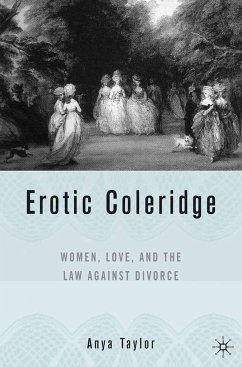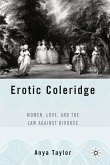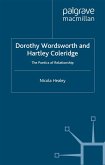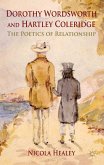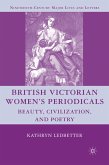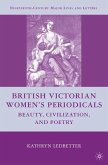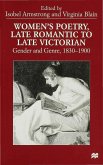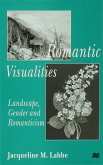Erotic Coleridge charts Coleridge's prolific creation of love poems from early flirtatious verse to poems about marital incompatibility, the blank faces of young women fearing for their reputations, the obliterating seductions of young women, the exaltation of falling in love, the spoken and sung voices of women, the pain of jealousy, and late meditations on how to live with the waning of love. In his prose he responds to Parliamentary debates about punishing adulteresses and gives advice about how marriage can warp the soul. In his sensual exuberance and his ethics of reverencing the individuality of other persons, Coleridge attends closely to the lives of women.
"Erotic Coleridge is a book that vividly and abundantly documents a facet of Coleridge's career neglected by previous critics and biographers." - EuropeanRomantic Review"This is a challenging, ambitious, and rewarding book.,,Her study is wide-ranging and draws on a variety of disciplines, encompassing biography, literary criticism, and social, cultural, and legal history."-The Coleridge Bulletin"Anya Taylor succeeds like no scholar before her in tracing an illuminating path through the dark and tangled romantic chasm that was Coleridge's sex life. A consistently fascinating mixture of biography, cultural history and literary criticism, Erotic Coleridge is full of unexpected apercus, quiet wit and emotional wisdom. It is particularly valuable for the delicate tact with which it relates Coleridge's enlightened views about women to his confused practice as a fallible lover, errant husband and loyal friend." - Tim Fulford, Nottingham Trent University, England
"Anya Taylor writes a rare book that illuminates something about Coleridge that has often been noticed but never articulated. In Erotic Coleridge, Taylor draws on the poet's newly discovered, newly ascribed, and rarely noticed love poems as well as his letters and notebooks to present him as a passionately physical man. She shows him flirting, blushing and panting. She shows him subltely attentive to women's physical bodies and deeply disturbed by his own problematic marriage. Ambitious, accomplished, and perceptive, Erotic Coleridge is a marvelous combination of meticulous scholarship and artful storytelling." - Debbie Lee, Washington State University
"Taylor makes significant contributions to a well-studied subject. George Whalley's Coleridge and Sara Hutchinson (1955), Anthony John Harding's Coleridge and the Idea of Love (1974), Molly Lefebure's The Bondage of Love (1986), and Robert Barth's Coleridge and the Power of Love (CH, Oct'89, 27-0786) all were written prior to the publication of important literary and biographical materials that bear on the topic - specifically, Richard Holmes's two-volume Coleridge (CH, Feb'91, 28-3167; 1998) and J. C. Mays's three-volume edition, Poetical Works (CH, Nov'02, 40-1383). Taylor interprets biographical facts from Holmes's books and elsewhere, and comments on poems published in Mays's edition and on long-important poems, especially "Christabel." She represents Coleridge as "relishing the particularity of young women," even "swooning" over them, but also "sympathizing with women's unique ordeals" and "forecasting a better civilization that would provide them with spheres for free agency." Taylor's argument opposes the currently influential representation of Coleridge as a misogynist, offered by Julie Carlson in In the Theatre of Romanticism (1994) and in an essay in The Cambridge Companion to Coleridge, ed. by Lucy Newlyn (CH, Jun'03, 40-5646). This accessible volume is devoted to Coleridge's life as much as to his literature." -T. Hoagwood, Texas A&M University, fromChoice (9/1/2006 issue)
"Anya Taylor writes a rare book that illuminates something about Coleridge that has often been noticed but never articulated. In Erotic Coleridge, Taylor draws on the poet's newly discovered, newly ascribed, and rarely noticed love poems as well as his letters and notebooks to present him as a passionately physical man. She shows him flirting, blushing and panting. She shows him subltely attentive to women's physical bodies and deeply disturbed by his own problematic marriage. Ambitious, accomplished, and perceptive, Erotic Coleridge is a marvelous combination of meticulous scholarship and artful storytelling." - Debbie Lee, Washington State University
"Taylor makes significant contributions to a well-studied subject. George Whalley's Coleridge and Sara Hutchinson (1955), Anthony John Harding's Coleridge and the Idea of Love (1974), Molly Lefebure's The Bondage of Love (1986), and Robert Barth's Coleridge and the Power of Love (CH, Oct'89, 27-0786) all were written prior to the publication of important literary and biographical materials that bear on the topic - specifically, Richard Holmes's two-volume Coleridge (CH, Feb'91, 28-3167; 1998) and J. C. Mays's three-volume edition, Poetical Works (CH, Nov'02, 40-1383). Taylor interprets biographical facts from Holmes's books and elsewhere, and comments on poems published in Mays's edition and on long-important poems, especially "Christabel." She represents Coleridge as "relishing the particularity of young women," even "swooning" over them, but also "sympathizing with women's unique ordeals" and "forecasting a better civilization that would provide them with spheres for free agency." Taylor's argument opposes the currently influential representation of Coleridge as a misogynist, offered by Julie Carlson in In the Theatre of Romanticism (1994) and in an essay in The Cambridge Companion to Coleridge, ed. by Lucy Newlyn (CH, Jun'03, 40-5646). This accessible volume is devoted to Coleridge's life as much as to his literature." -T. Hoagwood, Texas A&M University, fromChoice (9/1/2006 issue)

